Vietnam’s Collaborative Efforts with Key Partners: What Lies Ahead?
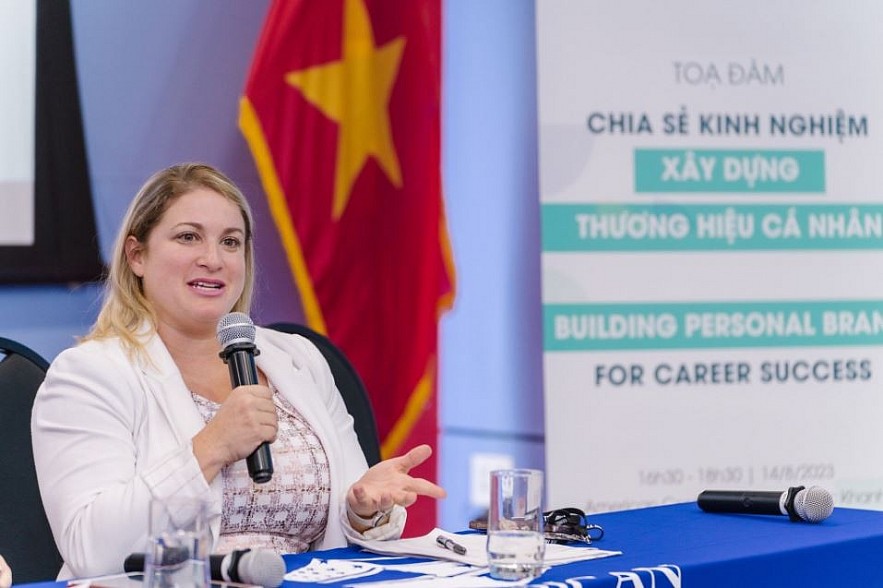 |
| Kate Barlett, Cultural Attaché of the US Embassy in Hanoi. |
Kate Barlett, Cultural Attaché of the US Embassy in Hanoi: More connections among universities need to be made to strengthen Vietnam – United States educational cooperation. Both countries are interested in promoting cooperation in training the young generation. Our focuses in this field include STEM (Science, Technology, Engineering, and Mathematics), English language training, and partnerships between the two countries’ schools.
The United States is considering possible methods to integrate more STEM programs in educational cooperation with Vietnam. We support science teachers in Vietnam to access teaching resources from kindergarten to grade 12 and university. To access good opportunities in the global job market, young Vietnamese need to be equipped with STEM knowledge, English skills, and other soft skills such as teamwork, problem-solving, and critical thinking.
Regarding school connections, we hope to build and promote study in Vietnam programs to US students. We have discussed with Vietnamese universities to establish training programs in English so that US students and international students in general can study in Vietnam. We also have a Fulbright program with US scholars and students coming to Vietnam to study and do research. Later, when they return to the United States, they can help Vietnamese scholars and students in making applications and searching for schools in the United States.
More universities in Vietnam have established affiliate programs with foreign universities, including the United States. However, there are difficulties in applying for visas for US students to study in Vietnam. We are working with Vietnamese authorities to simplify this procedure.
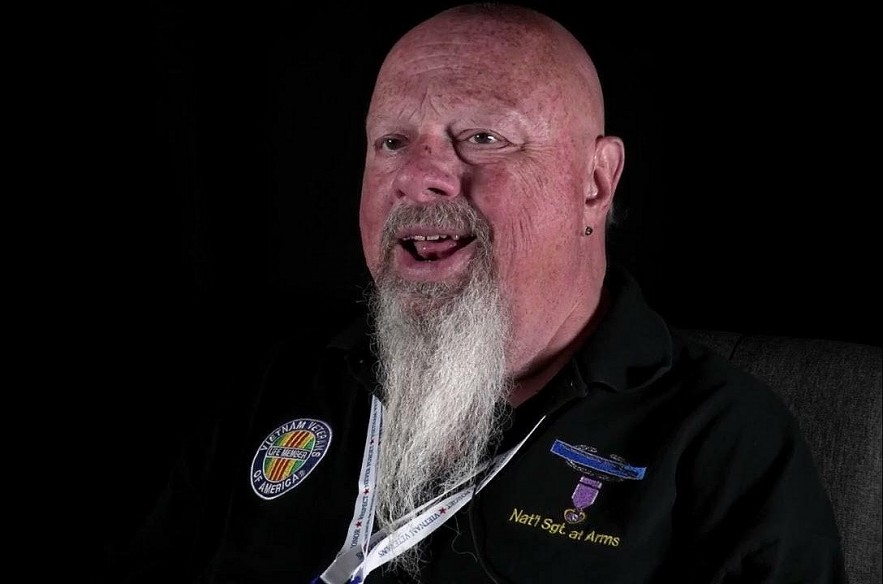 |
| Grant Coates, Chairman of Vietnam Veterans of America POW/MIA Committee |
Grant Coates, Chairman of Vietnam Veterans of America POW/MIA Committee: More cooperation needed to look for missing soldiers as per Vietnam – United States’s joint statement to upgrade relations to a comprehensive strategic partnership for peace, cooperation, and sustainable development mentions that the two sides will closely cooperate in overcoming the consequences of war and building trust and enhancing mutual understanding.
 |
| Christopher Valoon, American Chamber of Commerce in Vietnam (AmCham) in Da Nang |
Christopher Valoon, American Chamber of Commerce in Vietnam (AmCham) in Da Nang: Vietnam needs more qualified engineers as the quality of human resources is a problem for Vietnamese businesses when attracting investment and cooperation with the United States.
In Vietnam, many people think that university degrees are more valuable than vocational training. However, this does not accurately reflect the reality of technology businesses. Many experienced and highly compensated engineers and technicians do not necessarily need a university degree. Meanwhile, students of technology and engineering universities lack practical knowledge. There is a gap between their education program and actual activities at businesses. They lack hands-on experience and opportunities to work directly with equipment and machinery.
To have better opportunities to further develop in the field of technology engineering, especially semiconductor technology, Vietnam needs to further promote vocational training, placing vocational training on par with university education.
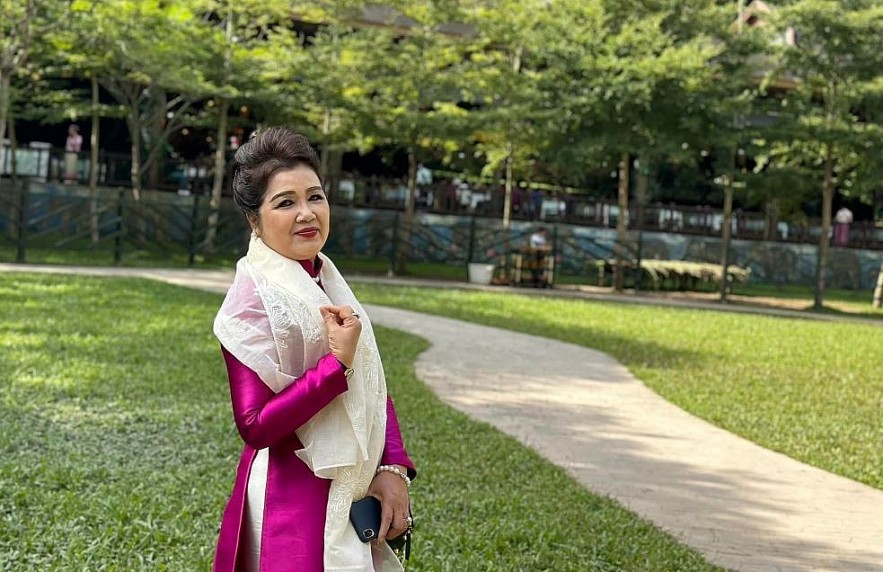 |
| People’s Artist Le Ngoc. |
People’s Artist Le Ngoc: Enhance exchange among artists as Vietnamese performances are well-received and loved by the Chinese public. To promote this advantage, cultural organizations and art troupes need to create conditions for artists to study and join training courses in China.
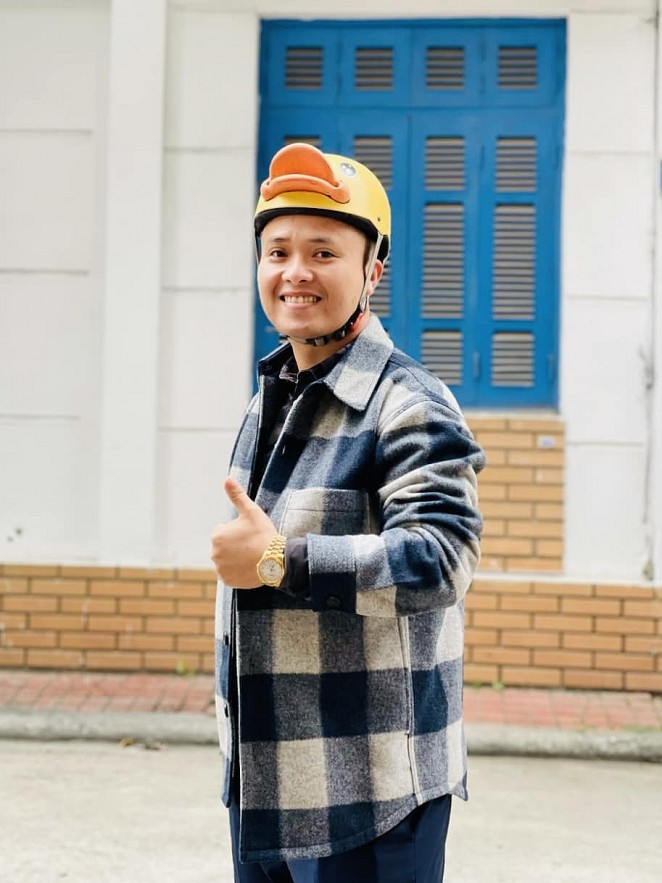 |
| Pham Duc Luan, Director of Kokoro Joint Stock Company. |
Pham Duc Luan, Director of Kokoro Joint Stock Company: Take advantage of job opportunities as the development of bilateral relations is a good opportunity for Vietnamese workers in Japan. Vietnam needs a plan to train high-quality human resources and labor both at home and abroad to meet Japanese businesses’ requirements.
Japan has advantages in attracting Vietnamese workers such as strong investment demand in Vietnam; similarities in culture and customs; discipline at work; and modern scientific working methods. After completing their studies and working in Japan, Vietnamese workers can be recruited into positions with stable income at Japanese companies in Vietnam and Vietnamese businesses that cooperate with Japanese partners.
Vietnam and Japan need to increase their understanding of the laws, culture, customs, and practices for business cooperation, exchange, and trade.
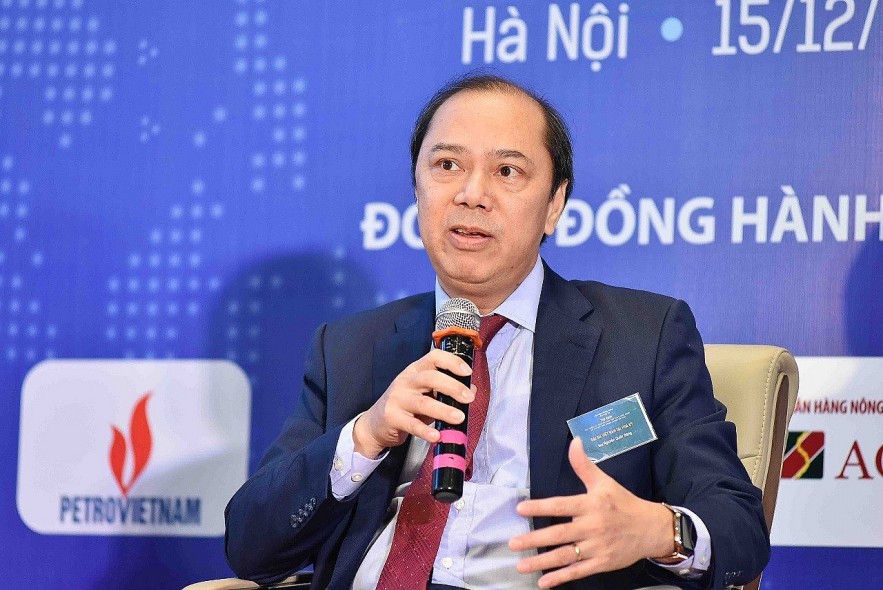 |
| Nguyen Quoc Dung – Vietnamese Ambassador to the United States. |
Nguyen Quoc Dung – Vietnamese Ambassador to the United States: Reasonable assignment according to regional thinking is necessary as US businesses often prioritize stability and sustainability of supply when investing in a foreign country. They are politically sensitive so that they can promptly orient, expand, and redirect investment to suit trends, ensuring long-term profits. Vietnam should be more proactive because the cooperation aims to meet Vietnam’s development requirements and stems from our actual needs. Vietnam needs a coordination mechanism to synthesize, review, and urge the implementation of the agreed contents.
Vietnamese localities need to closely coordinate with each other and have reasonable assignments according to regional thinking when planning to create the best ecological complex to attract investment. Ministries, localities, organizations, and businesses need to carefully review documents, proactively propose and review specific contents, funding, roadmaps, and cooperation; carry out preparation work on facilities and human resources; proactively contact and search for US partners and businesses.
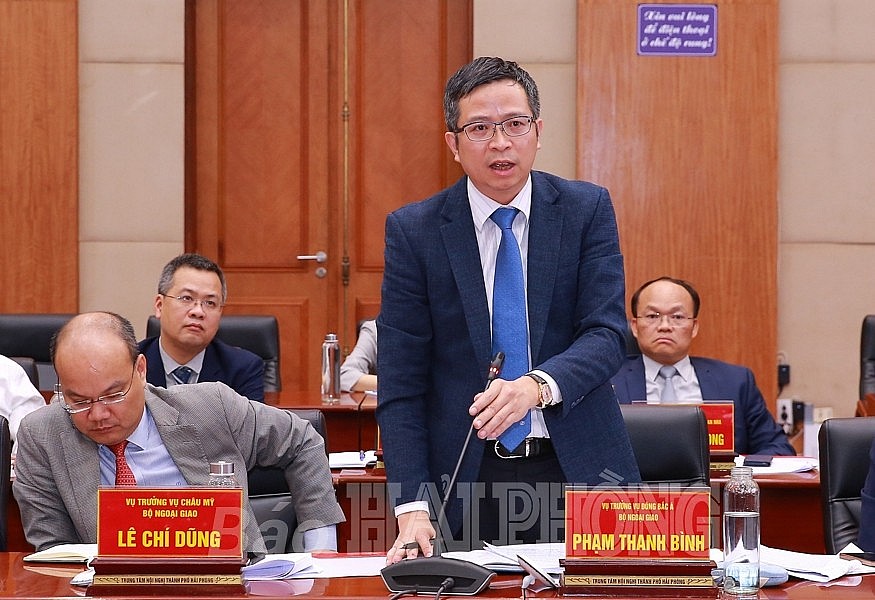 |
| Pham Thanh Binh, Director of the Northeast Asia Department, Ministry of Foreign Affairs of Vietnam |
Pham Thanh Binh, Director of Northeast Asia Department, Ministry of Foreign Affairs of Vietnam: Boostering mutual understanding at all levels is crucial as forecasts say that by 2024, China will restore stable development and this is considered a favorable factor to expand the Vietnamese agricultural products exported to China. To promote effective cooperation, it is necessary to actively expand export markets for products that Vietnam has strengths in, such as agriculture, fisheries, and seafood.
Vietnam and China should have further discussions in removing tariff trade barriers and develop and publish popular handbooks and specific instructions on the import-export policies and regulations of the two sides for businesses to know and implement. At the same time, both sides should increase their understanding of each other’s markets regarding import and export policy regulations and professionalize traceability, testing, quarantine, packaging, and labeling of goods and products.
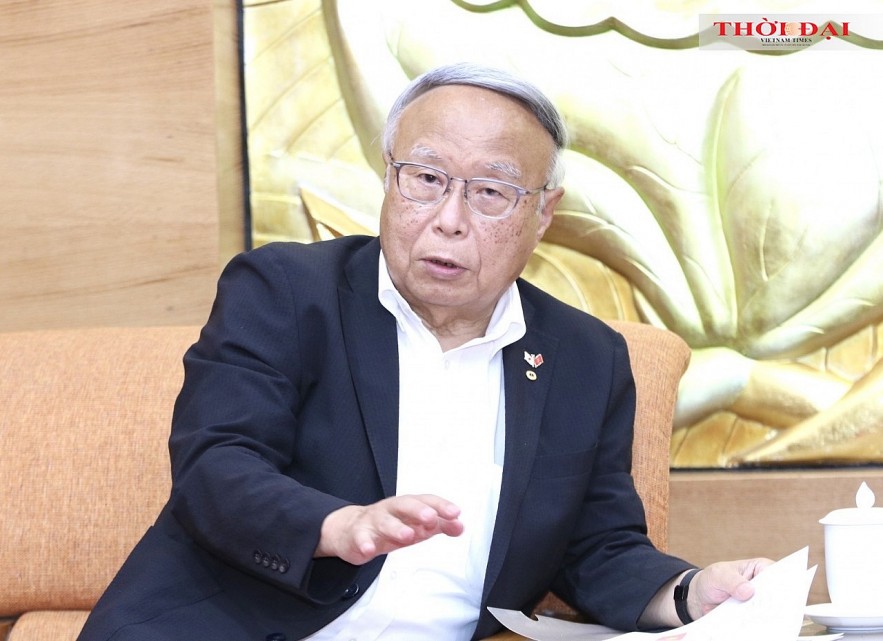 |
| Hiroyuki Ogawa, Secretary General of the Japan-Vietnam Association |
Hiroyuki Ogawa, Secretary General of the Japan – Vietnam Association: Expanding exchanges with the host community is of utmost importance as the Vietnamese community in Japan is increasing in number. The young generation plays a pivotal role in developing relations between the two countries now and in the future, and it is necessary to promote exchange activities and increase mutual understanding among young people of the two sides.
Vietnam has grown from a country heavily affected by war to become a dynamic country in the region. Vietnamese young people live with big dreams and expectations. Soon, we will cooperate with several Vietnamese universities to organize short-term exchange courses, creating opportunities for young Japanese people to experience the country and people of Vietnam.
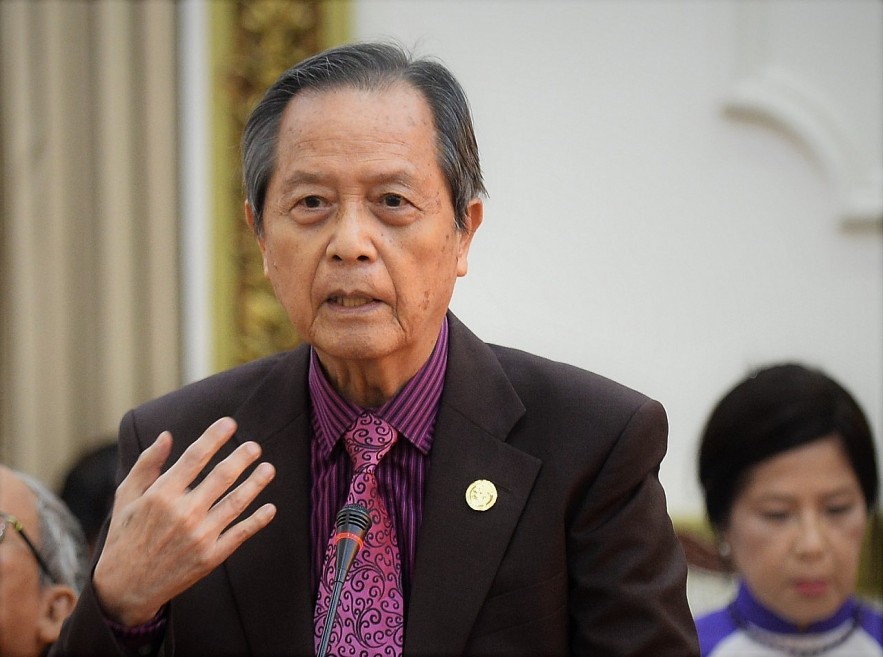 |
| Professor Dang Luong Mo, overseas Vietnamese in Japan. |
Professor Dang Luong Mo, overseas Vietnamese in Japan: Promoting the role of overseas Vietnamese in the semiconductor industry is a crucial step as the leaders of both sides supported the development of the semiconductor ecosystem in Vietnam. Vietnam needs to have appropriate models and organizational mechanisms to attract the force of overseas Vietnamese.
Specifically, the authority can invite overseas Vietnamese experts to return home for 1-2 months or work online. The state can establish a consulting group of overseas Vietnamese experts on semiconductor chips, creating opportunities for them to share knowledge and experience with the design team and help enhance competitiveness. Policies on bidding, financial loans, insurance, and communication… should be established to prioritize small and medium-sized enterprises participating in projects using the state budget. For infrastructure projects related to factors such as information security and energy safety, regulations, standards, and technical barriers for equipment and criteria must be gradually promulgated. In addition, domestic businesses should be encouraged to cooperate in doing research.
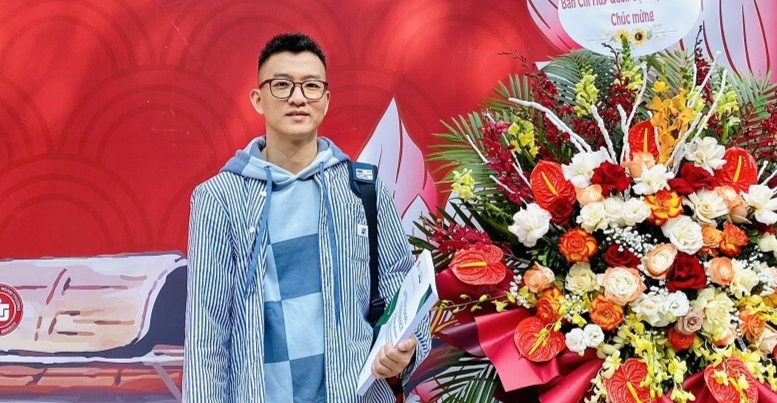 |
| Dai Yong Lin, Representative of the Trade Promotion Office of Yunnan (China) in Vietnam. |
Dai Yong Lin, Representative of the Trade Promotion Office of Yunnan (China) in Vietnam: Vietnam is a potential market but needs to improve its trade infrastructure as the Vietnamese market has a great demand for household appliances, spare parts, machinery, and equipment, while Chinese enterprises have advantages in product diversity, reasonable prices, and great competitiveness.
However, Chinese businesses encounter difficulties in the Vietnamese market such as high competitive pressure because many foreign businesses also attach importance to the Vietnamese market and many Vietnamese consumers do not have a full understanding of Chinese products. Vietnam should coordinate with China to create a more favorable business environment, support sustainable development, reduce pollution, and protect the environment, and enhance electronic payment integration to reduce cash payments in transactions. Vietnamese businesses need to increase understanding of the Chinese market regarding import and export policy regulations.
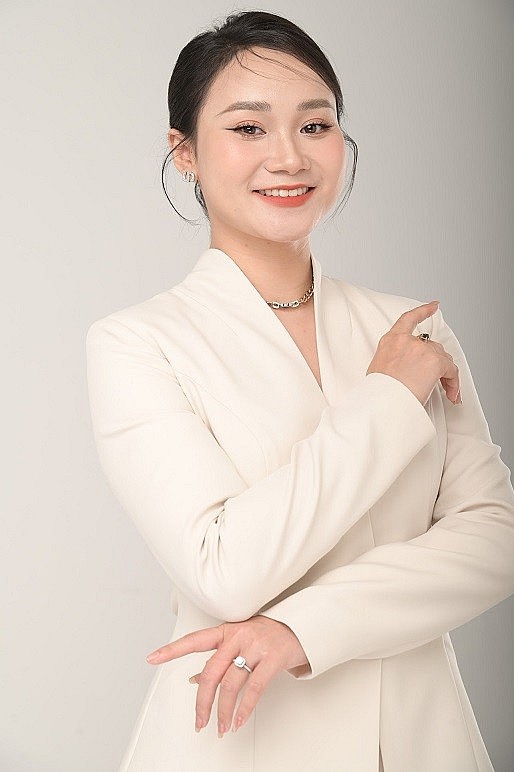 |
| Pham Thi Bao Anh, Chairwoman of the Vietnam – China Business Association, Vietnam Private Business Association |
Pham Thi Bao Anh, Chairwoman of the Vietnam – China Business Association, Vietnam Private Business Association: Getting rid of the mindset of unofficial quota exports is important for effective trade cooperation. Vietnamese businesses need to overcome internal difficulties and increase understanding of the Chinese market regarding import and export policy regulations and professionalize traceability, testing, quarantine, packaging, and labeling of goods and products.
Vietnam and China should have further discussions in removing tariff trade barriers and develop and publish popular handbooks and specific instructions on the import-export policies and regulations of the two sides for businesses to know and implement.
The post Vietnam’s Collaborative Efforts with Key Partners: What Lies Ahead? appeared first on Vietexplorer.com.
Comments
Post a Comment